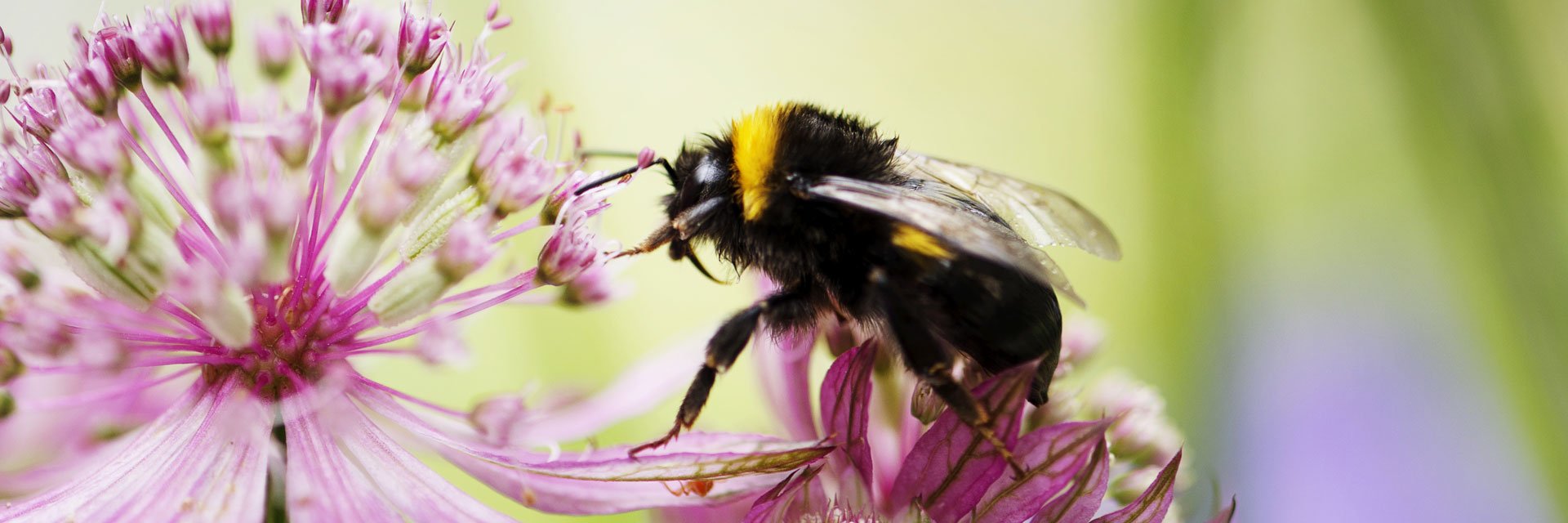
CBD - For the conservation of species, ecosystems, and natural resources
Taking the lead in conserving biological diversity, the Convention on Biological Diversity, CBD focuses on sustainable use and fair distribution of profits derived from genetic resources.
Convention on Biological Diversity, is one of three so called Rio conventions, adopted at the UN Earth Summit in Rio de Janeiro in 1992. The other conventions are the United Nations Framework Convention on Climate Change, UNFCCC, and United Nations Convention to Combat Desertification, UNCCD.
New goals for biological diversity
In December 2022 the CBD COP15 was held in Montreal, Canada. Based on the previous strategic plan for 2010-2020, the participating countries agreed upon a new global framework and a strategic plan for biological diversity stretching to 2050.
Read more about the background on the CBD website: cbd.int
The goals of the new global framework are expected to contribute to turning the negative trend in loss of biological diversity and the extinction of animals and plants. The framework also includes action targets regarding for example financing and participation of various stakeholders such as indigenous peoples and local communities, women, and youth.
The new framework includes four long-term goals to be reached by 2050, and 23 action targets. One of the most important goals focuses on the protection of 30 percent of the earth’s land and sea areas by 2030. Another goal states that wealthy countries will support developing countries with resources to protect biological diversity. Other goals cover areas such as the rights of indigenous peoples, sustainable use of natural resources, and sustainable production and consumption.
More information on the goals (cdb.int)
The COP15 also adopted a mechanism that describes how the countries should follow up their work nationally, for example by setting up plans for mandatory and voluntary indicators, capacity building strategies, gender equality integration, and financing.
More information about the main CBD COP15 decisions:
Decision 15/4 – Kunming-Montreal Global Biodiversity Framework
Decision 15/5 – Monitoring framework for the Kunming-Montreal Global Biodiversity Framework
Decision 15/6 - Mechanisms for planning, monitoring, reporting and review
The protocols of CBD
In the CBD there are two protocols:
- The Cartagena Protocol on Biosafety, also called the Biosafety protocol, aims to ensure the safe handling and use of living modified organisms (LMOs) resulting from modern biotechnology that may have adverse effects on biological diversity. The protocol ensures that countries are provided with the information necessary to make informed decisions before agreeing to the import of such organisms into their territory. The Cartagena protocol was adopted on 29 January 2000 and entered into force on 11 September 2003. The Swedish EPA is the focal point for the protocol.
More about the protocol (bch.cbd.int) - The Nagoya protocol aims at sharing the benefits arising from the utilization of genetic resources in a fair and equitable way. It entered into force on 12 October 2014.
More about the protocol (bch.cbd.int)
Action Agenda Portal (cbd.int)
Decision procedure of the CBD
Every other year, the CBD, including the protocols, holds the COP, Conference of the Parties, where all countries that have ratified the convention participate, including the EU.
Two subordinate organs prepare the decision documents:
- Subsidiary Body for Implementation, SBI, recommends actions to accelerate the implementation of the goals.
- Subsidiary Body on Scientific, Technical and Technological Advice, SBSTTA, ensures that the decisions are based on a solid technical and scientific perspective. The Swedish EPA is the focal point for this body.
Sweden and the CBD
Sweden signed the CBD in 1993. To a great extent we have implemented the convention’s goals into our own national environmental work.
List of all Swedish contact persons for the CBD and related processes (cbd.int)
The CBD parties’ reports on their work
All country signatories to the CBD are obliged to publish regular reports on their work to contribute to the convention’s objectives. In 2019, Sweden published its sixth report.
Share voluntary actions
The CBD parties encourage all stakeholders, such as indigenous peoples and local communities, as well as government authorities, non-governmental organisations, and business, to share their actions for biological diversity on the online platform Sharm El-Sheikh to Kunming Action Agenda for Nature and People:
Sharm El-Sheikh to Kunming Action Agenda Portal (cbd.int)Sharm El-Sheikh to Kunming Action Agenda Portal (cbd.int)
Contact and more information
Linnea Sundblad, linnea.sundblad@naturvardsverket.se
Malte Timpte (SBSTTA-focal point), malte.timpte@naturvardsverket.se
Johan Abenius, johan.abenius@naturvardsverket.se
The CBD secretariat is based at the UNEP in Montreal, Canada.